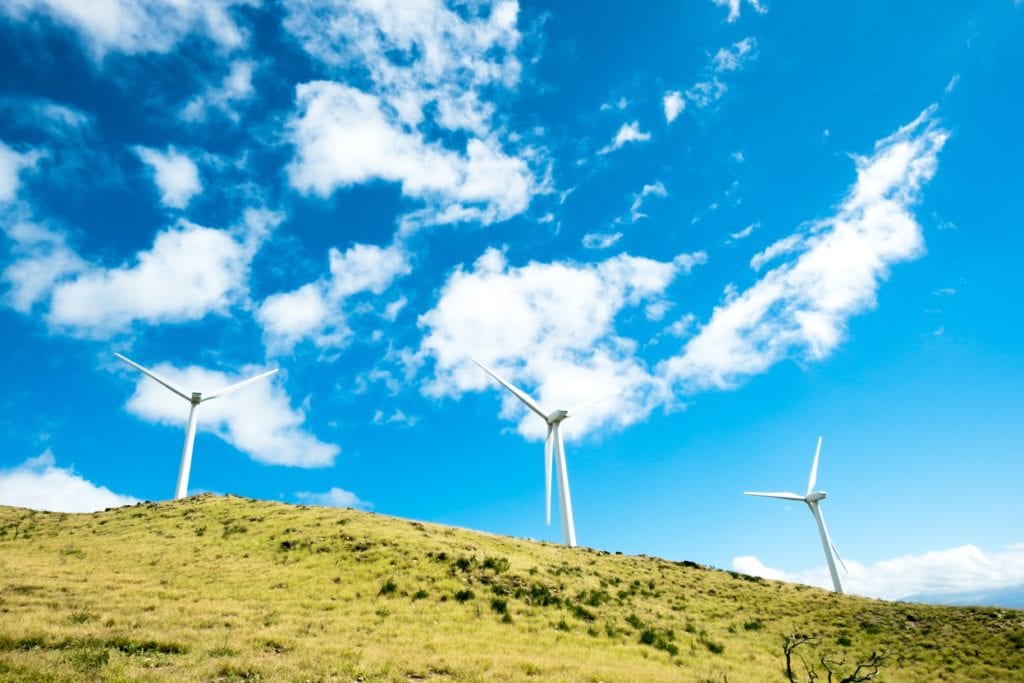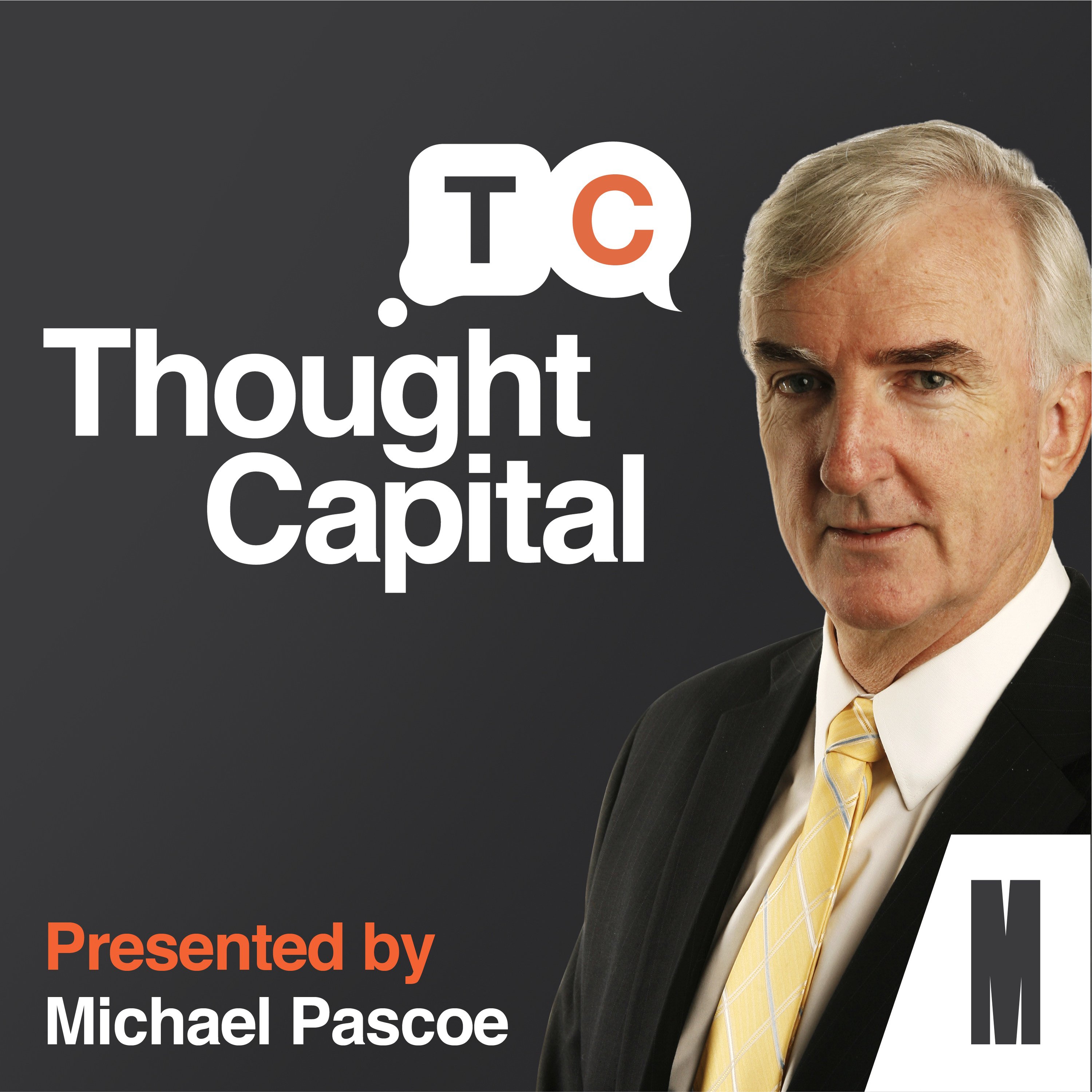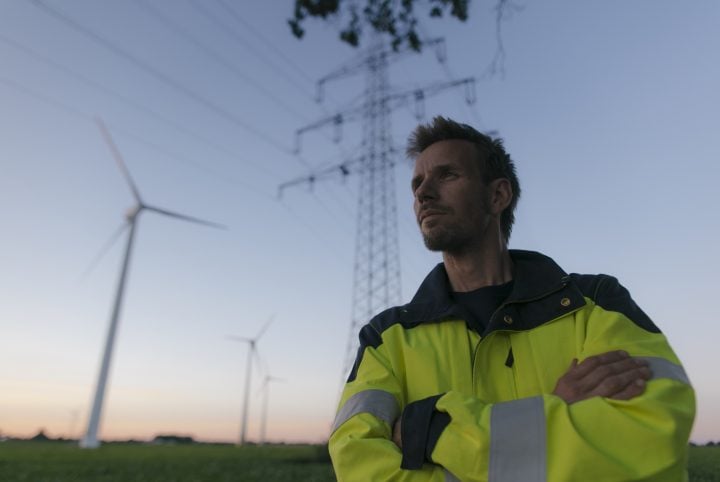Michael Pascoe: Welcome to Thought Capital, the podcast that delves into the wealth of ideas created by the experts at Monash Business School in Melbourne, Australia. Energy policy, one of the greatest challenges of our time, and we’re still trying to come up with the viable solutions.
Gordon Leslie: If I could do one thing on energy policy, it would be to put a price on carbon. That’s the view of the majority, if not all economists, in the environmental and energy space.
Michael Pascoe: Climate change policy in Australia has become highly politicised, the apparent trigger for leadership changes on both sides of politics. Yet we have committed to reducing carbon emissions, moving away from fossil fuels to renewable energy sources, the problem is how. Dr Gordon Leslie, a Department of Economics lecturer, focuses on energy market policy, competition, and consumer engagement. Welcome, Dr Leslie.
Gordon Leslie: Thank you, Michael. Pleasure to be here.
Michael Pascoe: You’ve taken a particular interest in researching the effect on electricity supply and prices of rooftop solar panels. What did you find?
Gordon Leslie: The obvious, but the essential, more rooftop solar means more energy is generated at our homes in the middle of the day. Perhaps what’s more nuanced is, how does the rest of the energy market respond to that? So what I found is actually in some cases the more efficient fossil fuel generators … and this is in the state of Western Australia, they’ve reduced their output a little bit. But the less efficient peaking generators, which are more flexible in when they can go on and off, have increased their production. So actually across the whole fleet we’ve lost a little bit of efficiency I guess in the way we use our gas-fired generators.
Michael Pascoe: Lost efficiency. But what about the carbon output?
Gordon Leslie: Absolutely. Overall less carbon is getting emitted, but what it’s giving us is a bit of a window into what the future’s going to look like. So the more flexible generators, which can just fire up … think of them like a jet engine, blast on, blast off. We need them to produce more. The steam engine type power plants … the ones where, that’s a lot of energy to get them up and running. But once they’re up and running, they’re efficient. Well, they’re perhaps a little less viable. The economics aren’t working out as well for them as you increase the solar penetration.
Michael Pascoe: Is that a good thing or a bad thing?
Gordon Leslie: I think it’s probably just the market. As in, how could it be good? Well, it will be good if we ended up getting the lowest cost of supply, which means solar in the middle of the day, and then blasting more with the peakers at the start and the end of the day. If overall that picture uses less carbon emissions and is cheaper than having the kind of steady baseload running, that’s a good thing. Whereas it’s the potential for it to be a bad thing, is if the carbon intensity of these peaking units was so high, or just the cost of doing that is so high … which is a concern if we perhaps over-subsidise solar. Perhaps at some point there’s just going to be a tipping point where it’s not that valuable to add more solar into the system.
Michael Pascoe: There is the third leg, and that is a more efficient storage mechanism for solar. That’s the missing part of the puzzle at present?
Gordon Leslie: Potentially. I mean, what if it’s cost-effective enough to keep putting solar into the system, these storage owners might compete to buy up that energy that’s produced in the middle of the day, and then output it at the end of the day when we all come home and turn our lights on. At the moment, instead of using batteries by and large, the market is using these gas peakers. We’re not storing the solar, but we may get there. It may be that the economics of storage is only going to improve with more solar penetration.
Michael Pascoe: I’m trying to tie you down a bit here. Are you really saying solar doesn’t make much sense unless storage works? It’s available and there.
Gordon Leslie: Not necessarily. What I am trying to say is that more solar will improve the economics of storage, because what it will do is, it will allow you to charge up your batteries potentially for a lower price.
Michael Pascoe: How efficient is the Australian energy market now?
Gordon Leslie: Well, it’s certainly subject to a lot of government inquiry and public inquiry. There are a lot of issues at play at the moment. A major one does seem to be concentration of ownership of a lot of the key generating stocks and natural gas producers. There can be quite negative consequences for the public if you allow too much market power in any industry, especially one as important as the energy industry. I’m not sure if reform is required, but certainly the concentration must be put in. The industry is getting put under the microscope, and we’ve got to perhaps think about encouraging more independent generator owners to enter the market.
Michael Pascoe: As an economist, is this an equation that can’t balance unless carbon is priced?
Gordon Leslie: So carbon price just helps us balance the social costs with the private incentives. Economists love a carbon price. Certainly we know that it should be bigger than zero and less than infinity. There is some damage which is getting done for all the CO2 that we pump in to the atmosphere. Now for you to put a price on carbon, that would definitely align the incentives of the big generator owners, particularly when it comes to investment in new projects with either the Australian or the global people. At the moment our electricity generation, about 60 to 70% is coming from fossil fuels still, despite all the renewable energy penetration we’ve had in the last decade or so.
Michael Pascoe: Does the carbon tax end up being paid by the consumer or the polluter?
Gordon Leslie: A little bit of both. I think this is one which we can’t beat around the bush. It will push up cost of consumption actions that have some sort of carbon content in the production process. We could think of transportation. You’ll pay more to fill up at the pump if you were to price carbon in. Likewise, for electricity in the times of day … particular in the wholesale market, where you are having heavier lines on the fossil-based generators, prices will be higher. That will get passed through to customers. I don’t know about you, but certainly when my prices go up for a product I use, I tend to use less of it. By design, that is why pricing things we don’t like, or taxing things we don’t like, is a good strategy.
Michael Pascoe: Is there a danger though that big companies pay the carbon tax, just pass the price on to the consumer, and keep polluting anyway?
Gordon Leslie: Yes. There is the chance that the tax would be fully passed through. I’d dispute that’s the case. As I said, I think we would use less of something that’s priced higher. We’ll start consuming less carbon-intensive products and change our behaviours. It is giving a price advantage to the activities which don’t have that much pollution built into.
Michael Pascoe: Well, what are the other models? What’s the alternative?
Gordon Leslie: Well, I guess what we’re seeing here is, instead of taxing the bad we’re subsidising the good, which is of course inherently subjective. At the moment we are still providing a lot of subsidies to solar panels owners. These are often in the form of what’s called a feed-in tariff. So the more energy I put back into the grid, I get compensated a little fee on top of that. There’s also a lot of other renewable energy programs. Absolutely that’ll encourage cleaner energy, but it may not be the most efficient and it may not even be the most fair. Of course, that money has to come from somewhere. Certainly the ACCC in their recent review of retail electricity prices, in I think late 2018, they’ve shown that the cost of these environmental programs is rising. Of course, it’s pretty much funded by the non-solar owners. So the longer you’re left out, the more people you’re paying this little subsidy to, it’s probably going to result in quite a distributional impact.
Michael Pascoe: Economists may or may not know much about politics, but if you were prime minister for a week … if you didn’t have to worry about the politics, you’ve got the power. What energy policy would you push?
Gordon Leslie: I would love to have a carbon tax. We saw it in 2012. Unfortunately it ended in 2014. I think that business groups are screaming for some sort of certainty and perhaps less distortionary incentives. And as I said, some sort of refined mechanism which is clear, easy to communicate to the public, where we’re going to just say, okay, this isn’t just a hike. We’re just trying to move your consumption patterns away from more polluting activities to the cleaner activities. So this is correcting a distortion.
Michael Pascoe: The big challenge is, what price do you put on carbon?
Gordon Leslie: There are a lot of ways in which you can get an estimate as to how the future damages might play out. Certainly a few years ago there used to be this consensus that the true social cost of carbon was about 20 to $40 per ton. Now, that’s at a global scale. It seems to have risen a lot more in recent times, maybe towards 80 to 100. Again, that’s sort of saying, if I emit one ton of CO2, it affects the whole world. We may also want to just be a little bit selfish and say, well, what’s the damage to Australians? We’re basically going to cut back our emissions to save everybody else. We want them to do it too. That is probably why you just want to have ‘a’ price on carbon to start with, just to get the mechanism in place. Then when you do have your big international treaties, or you’re negotiating trade with other countries, you say, well, I’ll raise mine if you raise yours a little bit.
Gordon Leslie: That is perhaps one way we could get towards more global agreements. In fact, I’ve got to say that a lot of people’s dream is that if there was leadership from China or the USA on this, they could say, well, we’ve got a price on carbon. You want to trade with us? Well, we’re going to put an import tariff on your goods because you’re not pricing in carbon like we are.
Michael Pascoe: The climate scientists carry most of the heat, so to speak, from the climate debate. Is it up to economists to come up with a proper way of measuring carbon impact on the economy?
Gordon Leslie: Economists definitely have a role to play, but it is really important for us to have a framework which can’t be gamed too heavily. The reason I say that is, when you start looking 100 years into the future, how you discount the future really affects your cost estimates. Meaning, as you know, a dollar today is worth more than a dollar tomorrow. If I say it’s worth 5% more versus 2% more … or if you compound that out over 100 years, it has a really, really big impact. So in some ways that is a question for more than just economists to say, how do we discount the future? How much more do we value life today than tomorrow? I love economists, but maybe you don’t want us to make that call for you.
Michael Pascoe: The question of building a new coal-fired power station has become political in itself. Does it make sense economically?
Gordon Leslie: It is a bit hard to say whether the economics of coal … if we were just to hold today’s policies flat for 100 years, whether it’s a good prospect or not from a business perspective. But certainly I think under today’s current uncertain conditions, there doesn’t seem to be a lot of enthusiasm to build a new plant.
Michael Pascoe: The big picture sometimes says, obviously we’re not alone on the world. Does it matter what we do though because we’re so small?
Gordon Leslie: The problem is global, and the solution probably has to be also global. I think we’ve got to be good citizens here. Anytime you can export technologies or ideas, there is a potential multiplier impact of it. So the ‘we’re too small’ argument, well, let’s try to turn this into an opportunity to try to amplify any good ideas we come up with, and promote them around the world.
Michael Pascoe: I suppose there’s the line that, look, I am a tiny, tiny, tiny part of the Australian tax base, so it doesn’t matter if I don’t pay any tax.
Gordon Leslie: Exactly right. That’s why we have a carbon problem and that’s why we have this pollution problem. Because individually what we do really has the most minuscule impact. But if you have billions of people with a minuscule impact, that’s a big impact. That’s why I do really like the idea of taxes and other sort of pricing mechanisms, to push everybody to just act in their own self-interest. But to be a bit more in the social interest.
Michael Pascoe: By 2030 Monash University’s goal is to have net zero carbon emissions across its four campuses. It’s investing $135 million in a range of energy efficiency programs, from solar power on rooftops to buying electric power from a wind farm in Victoria, switching to LED lights, and getting off natural gas. I went on a tour of the new bioMed building at the Clayton campus and found batteries the size of shipping containers.
Scott Ferraro: My name is Scott Ferraro. I’m the program director of the Net Zero Initiative at Monash University. We’re standing on top of the Biomedical Learning and Teaching building here at our Clayton campus. This building’s an example of the Net Zero Initiative. It’s a new building, which has been opened within the last 12 months. It’s an all electric building, so we’ve shifted away from natural gas on this building. It’s got oversized heat pumps, which will provide not only the heating and cooling to this building, but will also service the broader precinct. So we can shift surrounding buildings away from natural gas for their heating and cooling and hot water as well. It’s been designed with Passive House principles in mind. It didn’t reach Passive House certification, but it is a highly energy-efficient building. It’s also got a MWh of storage on the roof as well. So we’re standing in front of the batteries on this building. We’ve got a Mwh of vanadium flow batteries and lithium-ion batteries.
Scott Ferraro: The building will form one of the hubs of our Monash Microgrid. It will enable us to be able to shift our load internally in response to external market events.
Michael Pascoe: As part of the Net Zero Initiative, the university is creating the Monash Microgrid. Scott, what is the Microgrid?
Scott Ferraro: The whole tenet of the Monash Microgrid is being able to respond to an external market or network event, and to be able to provide that flexibility as cost-effectively as we possibly can. To demonstrate that this is technically viable, I’m setting up a market to show how the market plays out, and how the different actors within the market act under these situations. To assess the economic viability of these systems as well. But then also to provide greater benefits to the end customers who’ve invested in all these different assets, so they can realise more value for their electricity generation and use.
Michael Pascoe: What kind of interest have you had in this project?
Scott Ferraro: The interest in the Net Zero program has been pretty broad and far-reaching. Last year we were lucky enough to win the United Nations Momentum for Change Award in recognition for the strategy that was developed. So we had interest and engagement at the global level around the program. The interest there was from the linkage of what we’re doing with our physical infrastructure, with our research and teaching.
Michael Pascoe: Gordon Leslie, how are you involved in the Monash Microgrid?
Gordon Leslie: The Monash Microgrid, it’s an attempt to try to better coordinate our energy resources, but also our demand for energy throughout the day. To, for one, save the university money. But two, align more with the environmental impact of consuming energy at different times of the day.
Michael Pascoe: You’ve got reservations about the way solar cells are fitting into our energy mix at the moment, but you’re a champion of the Monash grid with solar cells.
Gordon Leslie: I hope that’s not the message that I’ve conveyed throughout. I just want to emphasise that we can’t only put all our resources into developing solar. It is only producing in the middle of the day. We need to also develop complimentary technologies. That’s why I’m really excited about the Monash Microgrid, because it’s, how can we complement this big influx of solar we are you’re going to see in these distributed settings throughout the country? Can we think of coordination devices to manage the batteries as we install them, but also our behaviour? So I’m really excited by the idea that, hey, we might be able to address one of the big consumption areas of electricity, which is our workplaces, in a clever market environment.
Michael Pascoe: Gordon Leslie, thank you for talking to us. We’d also like to thank Scott Ferraro, program director of the Monash Net Zero Initiative.
Michael Pascoe: You’ve been listening to Thought Capital from Monash Business School. You can find more episodes on iTunes, Spotify and Stitcher, or wherever you listen to podcasts. This episode was produced by Tina Zenou. Editor is Nadia Hume. Sound production by Gareth Popplestone. Executive producer is Helen Westerman. Thought Capital is recorded at Monash School of Media, Film and Journalism.




